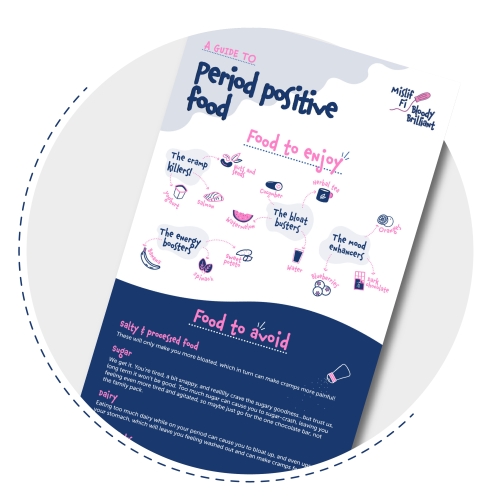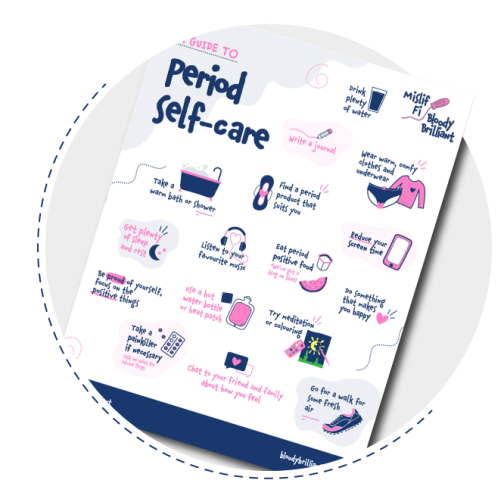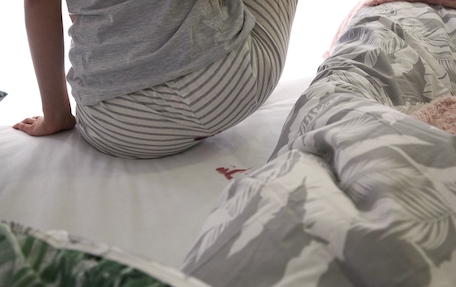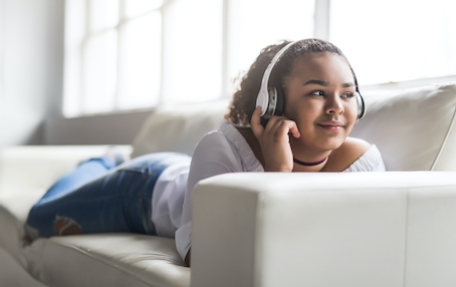Your body goes through quite a journey when you have your period. It’s got a lot going on with hormone levels going up and down at this time of the month (If you want to find out more about exactly what’s going on in your body have a read of our Period 101 blog). These hormones not only produce physical symptoms - good morning angry red spots - but they create emotional symptoms too. You may not have even realised this is part of getting your period!
Have you ever had a meltdown when you can’t get that messy bun just right? Or found yourself snapping at those you care about for no apparent reason around the time of your period? We have! On the run-up to, and during your period, your emotions go on a real rollercoaster, and it’s all down to those good old friends, our hormones! Like with all aspects of our periods, we all experience the emotional side of things differently. While some feel these effects strongly, others don’t notice them at all. We’re going to talk through some common emotional symptoms which your period may bring along with some hints and tips on how to combat them.
What is PMS? (Premenstrual syndrome)
It’s not entirely known what causes PMS, but it’s generally understood that it’s due to the changes in hormone levels around your period. There are emotional and physical symptoms associated with these hormone changes, both of which can have a knock-on effect on your mental health and how you feel about yourself. Some symptoms you might experience include:
- Greasy skin
- Greasy Hair
- Difficulties sleeping
- Cravings
- Bloating
- Upset tummy (feeling sick, diarrhoea or constipation)
- Tender or painful boobs
- Headaches
- Mood swings
- Feeling grumpy, upset or anxious
- Fatigue (feeling tired)
Now we know it’s hard to see the Bloody Brilliant side of all that, but it’s all completely normal - your body is going through a lot. One of the main things to remember is to not be too hard on yourself. We get it, it’s easy to say that when you haven’t just woken up from a rubbish night’s sleep with a bloated belly and a big old spot staring back when you look in the mirror. The truth is most girls and young people who have periods go through it. That person on the bus with the perfect hair and glowing skin, the level-headed friend who always has the best advice, your bestie that never fails to make you laugh – chances are they will ALL feel this way at some point if they have periods. Most of the time we’re too hard on ourselves, and would never notice it in others. So remember to be as kind to yourself as you would be to your friends.
Right! Now let’s try to do something to ease the symptoms!
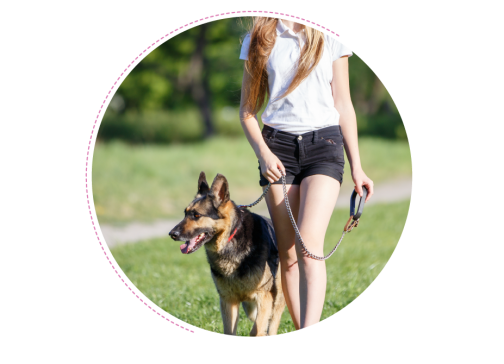
Grab some fresh air and stretch your legs!
Sorry, crawling out from under the blanket to get snacks from the kitchen doesn’t count! We’re not suggesting anything that takes too much effort, a nice steady walk or some other light exercise will help. When you exercise your body releases endorphins, these are ‘happy hormones’ they make you feel good in a way that no soppy rom-com will trust us! Being active – even just a little bit - doesn’t only help with making us feel happier it also helps to reduce the pain from cramps, and getting out in the fresh air can help with headaches too.
Eating healthily
So those cravings we mentioned…your cheeky hormones will be telling your body to reach for all the sugary food it can lay its hands on…but you need to try to control them, moderation is key! Although that family pack of biscuits might seem like a good idea now, you might well regret it later. When your body processes sugar it releases a quick boost of energy but after that boost comes a fall. A sugar crash can leave you even more tired and grumpy than you were in the first place. Not to mention all the other health issues that come along with consuming too much sugar. But there is a right way to do this! What you choose to fuel your body with over your period can really help with a number of things including: bloating, tiredness, cramps and skin breakouts (spots) we’ve got a whole guide on the best foods to eat, and ones to avoid during your period *SPOILER ALERT* it involves chocolate!
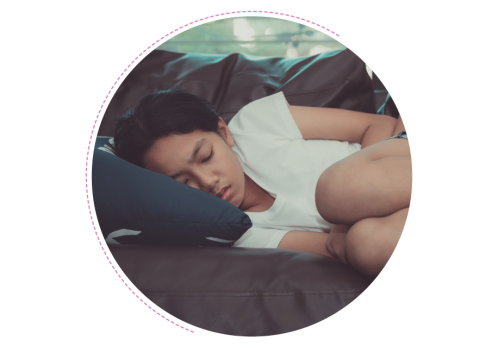
Sleep
When we sleep it gives our bodies a chance to recharge. Some days on the run-up to and during your period you might find it hard to keep your eyes open! But it’s understandable when you think about how much work your body is doing while you’re on your period. That’s not to mention all the other amazing things it’s doing to keep you healthy and growing. It’s essential that you listen to your body and try to get at least 8 – 9 hours of good sleep a night. You’d be amazed at how much better you’ll feel emotionally and physically after a good night’s sleep!
We know that can be hard when you’re on your period if you experience cramps especially, as they can keep you up at night. If you’re able to, try taking some painkillers after you’ve eaten, before bed. Or you could try wearing a stick-on heat pad to help with the pain.
Time away from screens and phones is really important for good quality sleep too, so put that phone or tablet on silent or leave it downstairs - no DM or notification is worth spoiling your sleep over! Another great tip - instead of watching TV before bed, try having a nice relaxing bath (extra bubbles) or shower, followed by a guided meditation or sleep cast – there are some really great free apps out there that will have you drifting off in no time.
Self-care
We mentioned this one earlier, but it’s so important we thought we’d say it again! Showing yourself some compassion and care is essential to positive wellbeing whatever the time of the month. If you’re struggling with PMS a little extra care goes a long way, we’ve got some fantastic self-care tips all wrapped up in a beautiful illustration for you. So, head over and check it out if you haven’t already.
While all these feelings and symptoms are completely natural, if you find that any of them are becoming too difficult to deal with and nothing seems to help, or they’re affecting your daily life at school or home, you must speak to someone about it. Mental health and wellbeing are as important as physical health so make sure you get support if you need it. You could start by talking to a friend or family member about how you’re feeling. If you don’t feel you can (or you feel they don’t understand) you can speak to a school nurse or book an appointment to see your doctor, they’re the experts just like the team here at Bloody Brilliant and they will understand and be able to support you.
